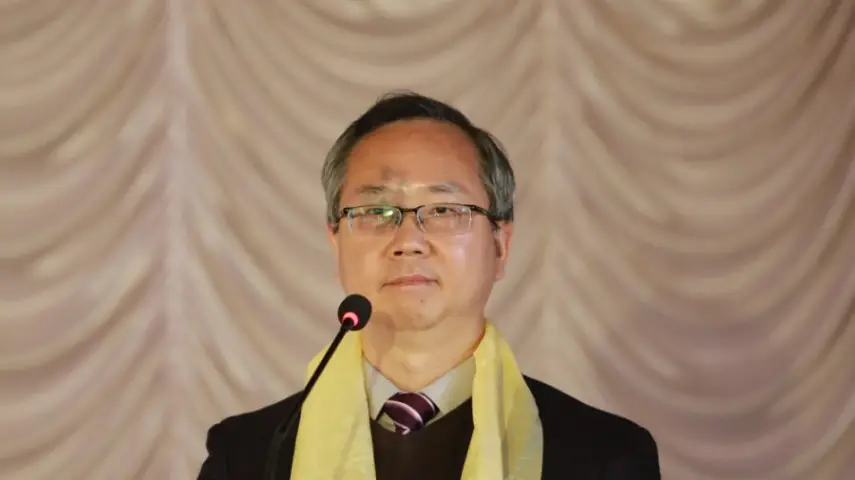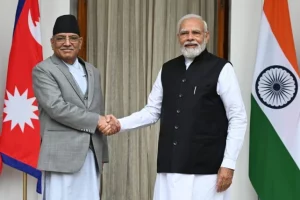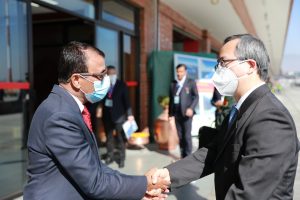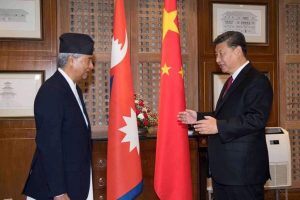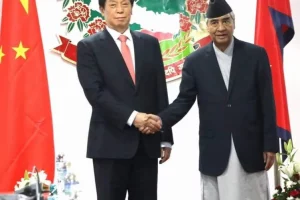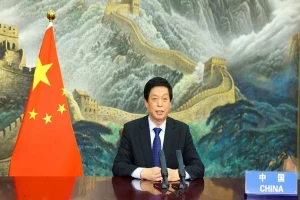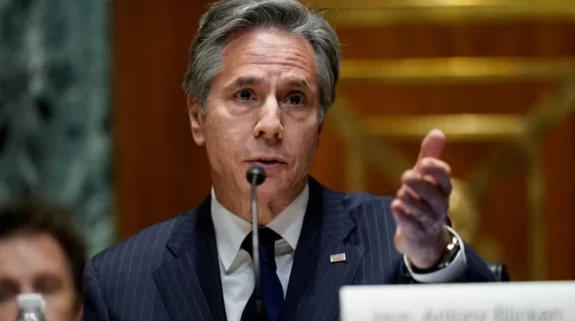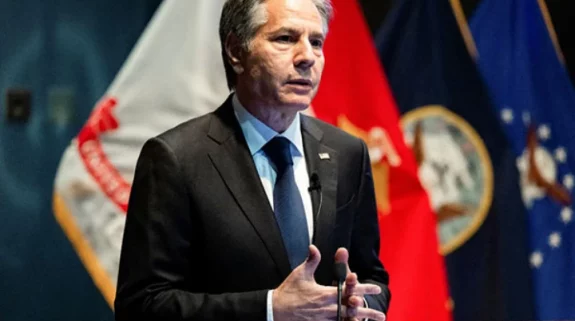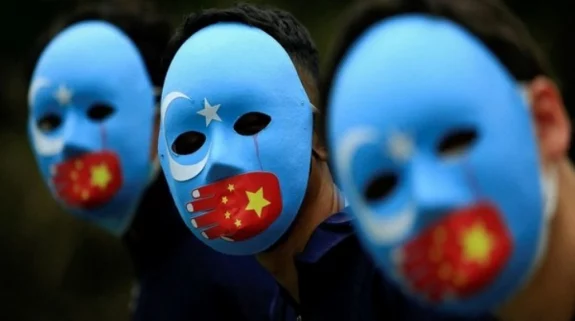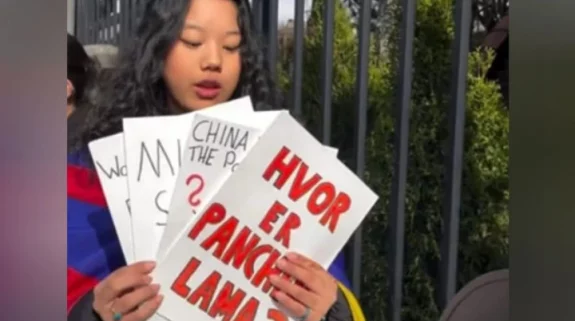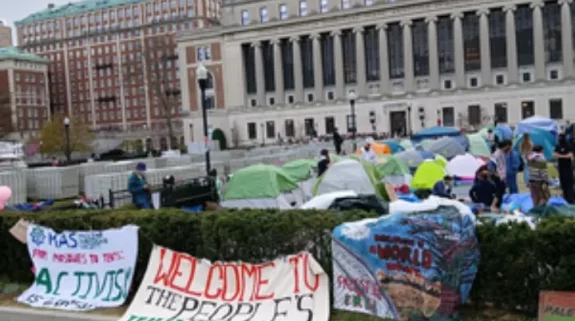Kathmandu: Chinese Ambassador to Nepal Chen Song’s remarks berating India’s policy towards Nepal and its other neighbours, questioning Nepal’s electricity trade and other goods with India, has invited controversy in the Himalayan country.
Nepali government has not made many comments formally regarding the controversial remarks of the Chinese ambassador. But Nepali lawmakers at the International Relations and Tourism Committee of the House of Representatives, on Thursday criticised the Chinese ambassador’s utterances.
“Unfortunately, you have a neighbour like India, but fortunately you have a neighbour like India, because India is a huge market with huge potential you can tap in to,” Ambassador Chen remarked while addressing a discussion titled ‘China in global economy and its impact in Nepal’, organised in Kathmandu on Saturday by the Foundation for Trans-Himalayan Research and Studies and Friends of Silk Road Club Nepal. “But at the same time, India’s policy towards Nepal and other neighbours is not so friendly and is not so beneficial to Nepal. So we call that policy of constraints.”
The Chinese ambassador’s remark has come at a time when Nepali Prime Minister is scheduled to visit China in the third week of September.
His critical observations invited criticism of Nepali lawmakers as they labelled the remark ‘undiplomatic.’
“Foreign ambassadors should understand that Nepal is in a very sensitive situation,” said Madhav Kumar Nepal, chairperson of ruling CPN (Unified Socialist), hinting at the remark of ambassador Chen. “They should speak by considering Nepal’s political sensitivities and Nepal’s non-aligned foreign policy.”
He said that Nepal could plunge into a geopolitical quagmire when they (foreign diplomats) speak against other countries.
Other lawmakers also called for not downplaying the Chinese ambassador’s remark. “We should not let any third country to speak about Nepal’s internal affairs and Nepal relations with any other countries and let such tradition to be established,” said CPN (Maoist Centre) Lawmaker. “ Foreign Ministry should make the Chinese ambassador aware about it,” he said.
Earlier, Nepal’s Foreign Minister Narayan Prakash Saud told The Kathmandu Post that his ministry had taken the Chinese envoy’s statement into notice.
Foreign policy experts in Nepal said that the Chinese ambassador berating Indian foreign policy towards Nepal and other neighbouring country was clearly undiplomatic and indecent. They called for Nepal government to respond to the envoy’s comments.
According to them, this is a part of growing trend of Chinese diplomats speaking harshly about other countries while defending China, known as wolf warrior diplomacy.
“The main reason behind China making comments about Nepal’s relations with the third country is that Nepal failed to discourage China to do so in the past,” Vijay Kanta Karna, former Nepali ambassador to Denmark, who is also keen observer of Nepal’s international diplomacy, told India Narrative. “When the Chinese were speaking against the Millennium Challenge Corporation (MCC) Compact, a US aid programme, Nepal should have told the Chinese not speak on Nepal’s bilateral relations with the US.”
Before Nepal’s parliament eventually ratified the MCC Compact agreement with the US in February last year, a Chinese foreign ministry official had criticised the US for pursuing ‘coercive diplomacy’ to get the MCC Compact to be ratified by Nepal’s parliament.
After the US embassy in Nepal termed the MCC Compact as a gift from American people to Nepal, Hua Chunying, an official of Chinese foreign ministry remarked in Beijing in February last year: “How could a ‘gift’ be sent by an ultimatum? How could people accept such a ‘gift’?”
Karna said Nepal had never faced difficulty in obtaining US aid in the past before China intervened in the case of MCC. “The latest remark raised the question if China has got special space in Nepal to speak against other countries” he said.
In the past, India faced accusation of the micromanaging the Nepal’s politics while China used to be considered as noninterventionist in Nepal’s domestic affairs. But what changed now is that even China is also facing the accusation of micro-managing Nepal’s internal politics.
China faced allegation that it allegedly played role behind the scene to bring CPN (UML) and CPN (Maoist Centre) together before the 2017 parliamentary elections and eventual merger of two party in 2018 resulting in formation of Nepal Communist Party (NCP).
China also faced accusation of making all out efforts to save the NCP co-chaired by former Prime Minister KP Sharma Oli and current Prime Minister Pushpa Kamal Dahal when they clashed over their respective role in the single party.
Nepal’s Supreme Court in March 2021 invalidated the NCP’s formation given that a party with the same name was already registered at the Election Commission. This led to the restoration of CPN (UML) and CPN (Maoist Centre) as two separate parties.
Arun Subedi, foreign policy advisor to Former Prime Minister Sher Bahadur Deuba said that the Chinese have been making efforts to exploit Nepali communist parties’ ideological ties with Beijing for their own advantage.
“The latest remark by the Chinese ambassador is undiplomatic and the government should seek explanation from the Chinese ambassador in some forms—either by inviting him at the Foreign Ministry for explanation or sending a diplomatic note,” Subedi told India Narrative.
The Chinese ambassador also downplayed Nepal’s electricity export to India at a time when the Nepal government has been seeing electricity as a key product of high export potential.
Nepal’s Ministry of Industry, Commerce and Supply recently introduced the third Nepal Trade Integration Strategy (NTIS)-2023 which has nailed electricity as one of the key service products, which has excellent export potential. The NTIS is a document which identifies products with the highest export potential.
Chen questioned how Nepal could achieve economic independence by exporting electricity to China.
“In the last fiscal year (2022-23) you exported electricity worth NPR 10 billion to India. How much did you import? It is worth NPR 19 billion from India. You have a deficit in electricity trade, one of the products you are proud of and you think that will bring economic independence,” said Ambassador Chen.
Nepal has not been self-reliant in electricity as it has to import power in the dry season (winter) when Nepal’s mostly run-of-the-river type hydropower projects generate around one third of their capacity. Nepal has been exporting power to India in the wet (summer) season.
The Chinese ambassador’s remark has come at a time when Nepali Prime Minister has been playing up an agreement with India to sign a long-term power trade agreement as a big achievement. India promises to buy 10,000MW of electricity in 10 years, a deal that was agreed to during the Prime Minister’s visit to India from May 31 to June 3.
The India’s cabinet recently endorsed the agreement paving the way for the signing of the 25-year long-term agreement.
“The Chinese ambassador’s remark has, in fact, undermined what Prime Minister Dahal has been boasting about as his major achievement as Prime Minister,” said Karna.
As only India has been connected with the cross-border transmission line, Nepal cannot sell its surplus energy to countries other than India directly. Nepal is seeking help from India to sell its electricity to Bangladesh too as the southern neighbour also lies between the two countries.
“Nepal’s trade deficit in electricity with India didn’t take place because we wanted,” said Subedi. “The Chinese ambassador must be aware of the cost of electricity generated from hydropower and mining resources.” Majority power generated by India is coal-fired and prices of coal have gone up amid Russia-Ukraine war, increasing the cost of production of electricity in India.
The Chinese ambassador also remarked about India’s growth story while comparing it with China’s economic growth.
“China’s economy is improving not because of opening up. We had a very strong foundation before opening up,” Ambassador Chen said. “Almost at the same time, India also opened its door, but we did not see any economic boom in India. Only in recent years, we see that India’s economy is starting to soar.”
He also called for closely aligning Nepal’s economy with that of China.
China-India relations failed to normalize, so Beijing is back at poking Delhi in the neighbourhood.
Chinese ambassador portrays India as obstacle to Nepal’s development.
Also: lectures Nepal on how to run its economy, create “equal social structure” and accept the “BRI gift”. https://t.co/s4Kiq5MLcb
— Constantino Xavier (@constantinox) September 6, 2023
China’s growth and our future is bright. We want to be benefit all the developing countries, especially Nepalese friends,” Ambassador Chen said. “My suggestions to Nepalese friends is that your economic structure needs restructuring. Will you do that? You need to put an eye on Chinese economic structures and incorporate economic structure more with Chinese economic structures.”
Subedi said that India was a natural market for Nepal’s electricity and other products given its geography.
Karna said that recent achievements with India in the areas of connectivity and power trade might not have gone down well with the Chinese as there has been little progress in implementation of Belt and Road Initiative (BRI) projects in Nepal.
“Nepal flatly rejected China’s categorisation of Pokhara International Airport as a BRI project,” Karna said. “Nepal has not responded to various Chinese initiatives including Global Security Initiative, Global Development Initiative and Global Civilization Initiative which may have also played a role in recent remarks of Chinese ambassador.”
Also Read: How India is ahead of China in battle for railways in Nepal






